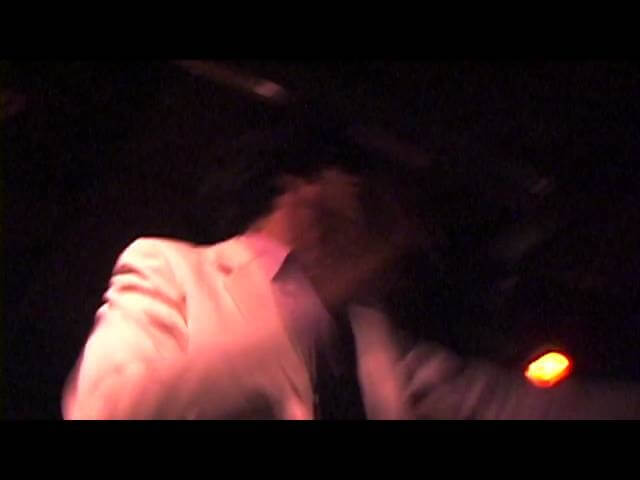Ian Svenonius of Chain And The Gang

Ideally, a rock band is a restrictive social unit. Like a gang, it comprises angry youths struggling to assert themselves against the established order. Like a small business, it manufactures a specific commodity, that being a rock song of a particular style. And, like a cult, it demands that its audience participates in a specific lifestyle. At least, such is the theory of Ian Svenonius. As a founding member of Nation Of Ulysses, The Make-Up, and Weird War—as well as the author of The Psychic Soviet—he's in a unique position to ponder the nature and contemporary significance of the modern musical group. His conclusion? When offered freedom, maybe it's better to remain in chains. Decider spoke with Svenonius about his latest musical aggregate—Chain And The Gang, performing Tuesday night at Eclipse Records—as well as its album Down With Liberty… Up With Chains! and the propaganda value of the record cover.
Decider: The record is called Down With Liberty…Up With Chains!. Your press release implies that fast food and bad architecture are synonymous with liberty. Are you saying that freedom, or liberty, results in bad art?
Ian Svenonius: The title comes from the Spanish partisans. Confronted by the Napoleonic liberating army and the ideals of the French revolution, they would shout “Down with liberty.” In the age of American imperialism and free markets liberating the people from whatever, there's an obvious analogy you can draw. Down with expression, down with innovation. It's a very conservative statement, for sure. Also, you have the chain gang—voluntarily incarcerating yourself, [embracing] a lack of freedom, being part of a group with a common ideology. You know, swearing subservience for the greater good. In music there's this quest for innovation, which is, obviously, a bad idea. It's narcissistic. It's not really what people want. You don't really want something innovative; you want something direct and communicative. So, down with liberty.
D: The cover, which depicts you dressed in an old-school prison uniform, seems to suggest that idea.
IS: The way I see it is, the rock 'n' roll band has enjoyed a position of primacy for 40 years, maybe longer—a lot of it because of the album cover. This is because it had so much space on it. That space had to be filled up somehow, so you had these liner notes which inevitably became propaganda. They necessitated a kind of importance on the part of the artist. Groups, instead of being musicians, became cult leaders in a sense. It wasn't enough for a group to spread enjoyment or to make people happy. Rather, they demanded absolute fealty. The record cover created this group paradigm, larger than itself, and swallowed up competitor mediums—theater, photography, and [visual] art.
D: How did these musical groups demand fealty from their fans?
IS: Well, if you're Black Sabbath, they don't want people to just enjoy their music; you're supposed to own all the records and you're supposed to be a certain kind of person. Heavy metal demands a consistency. You know, “We're not a band, we're a lifestyle.” It's obvious that rock 'n' roll is very cult-like… But, now that there are fewer record covers, the [musical] group is diminishing in importance. Or, rather, it doesn't have the same kind of importance.
D: As the record cover has shrunk, first to a CD size, then into non-existence in the digital age, the cult-like status of bands has lessened?
IS: Music itself is becoming less important. Now, music doesn't have these cult overtones nearly as often because the record cover is becoming a rarer and rarer thing. The chain gang concept is that this is another future of American life: a work gang that sings while they work, “That's the sound of the men / working on the chain gang.” In that song [Sam Cooke's “Chain Gang”], people are taking amusement from the sound of these people working on the gang. That's very poignant, actually, because musical aggregates are among the most exploited workforce. They're rarely paid, they're bound by a common destiny, and imprisoned, in a sense, by an oath of loyalty to one another, but mostly by their expectations of the medium.
D: As a performer, are you so imprisoned?
IS: I am chained to it, I suppose, but I am prisoner of love.